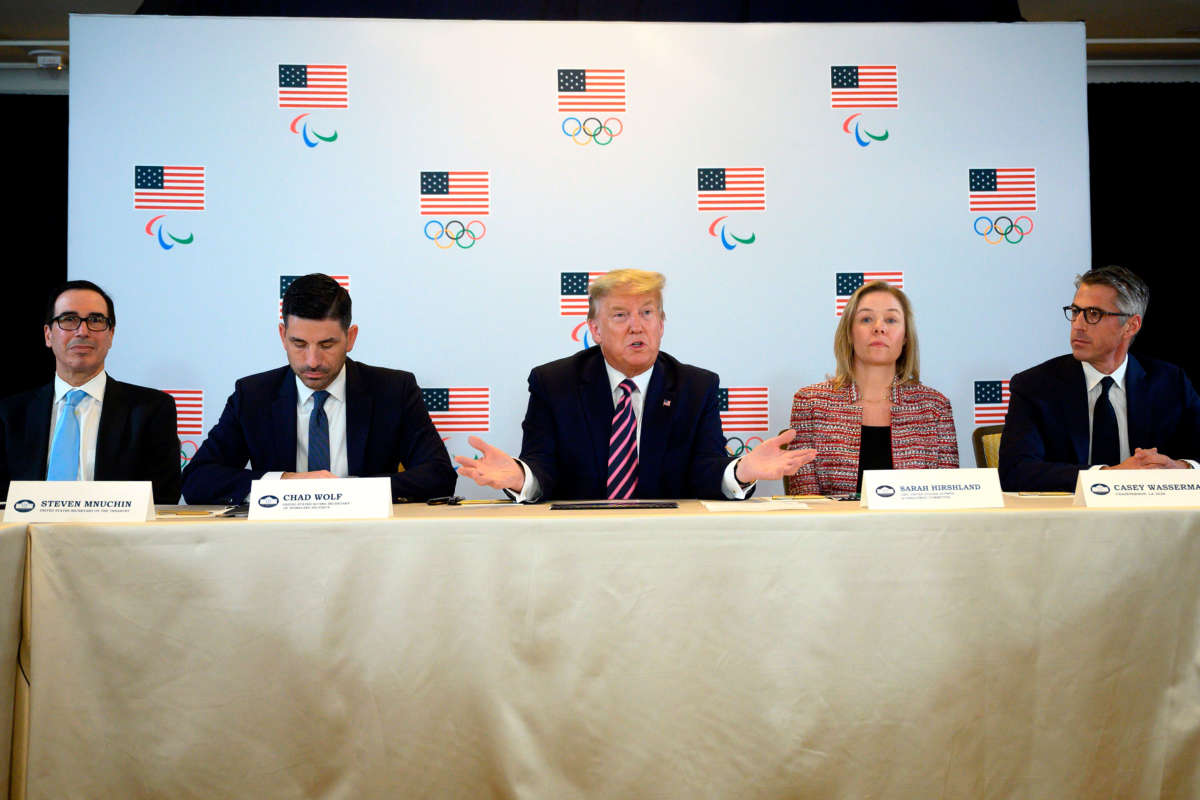Due to threats that the Trump administration made earlier this year to withhold funding from the World Anti-Doping Agency (WADA), the United States may face punishments in the international sporting world.
However, Witold Banka, the head of WADA, sought to assure U.S. athletes on Friday that their participation in such events, including in the Olympics next year, would not be jeopardized due to political disagreements between the agency and the U.S.
The White House’s Office of National Drug Control Policy (ONDCP) made recommendations to Congress in June to pull back funding unless the international agency agreed to give the U.S. “a proportionate voice in WADA decision-making.”
The United States gives $2.7 million to WADA annually, more than any other country. WADA responded to the demands from ONDCP, however, by saying that the U.S. does have representation on its many committees, “better than any other single nation,” a spokesman pointed out.
“To allocate seats exclusively to the highest funders would eliminate the majority of nations of the world from ever holding a seat,” a statement from WADA said at the time. “Would Americans support having all Members of the U.S. Congress come from just the wealthiest states?”
The threat from the Trump administration prompted other nations to push for amending rules within the anti-doping organization to find the U.S. non-compliant with the World Anti-Doping Code if they didn’t continue providing funds for the agency.
“These governments want us to consider an amendment to the compliance standard meaning that non-payment by a government of its WADA contribution could lead directly to that country’s NADO (National Anti-Doping Organization) being declared non-compliant with the World Anti-Doping Code,” WADA president Witold Banka said to Reuters on Thursday.
A nation that is non-compliant with the rules imposed by WADA typically risks having its athletes banned from sporting events, including from the Olympics. Per the International Olympic Committee rules, athletes’ nations must pass WADA’s Code.
However, on Friday, Banka sought to assure athletes that political differences between WADA and the U.S. wouldn’t threaten their ability to participate in next year’s Olympic games.
“Fairness for athletes all over the world remains my number one priority. I will never let clean athletes become hostages of political games,” Banka said.
Action could still be taken against the United States, however. “Under the International Standard for Code Compliance by Signatories, there are many possible consequences that do not impact the athletes,” Banka added.
Such actions were taken against Russia, for example, when WADA placed a ban on that nation, but allowed some athletes to participate under the designation “Olympic Athlete from Russia” in 2018 if they passed drug tests. If that were to happen for the U.S., American athletes would be barred from wearing apparel or waving the nation’s flag, for example. The U.S. national anthem may not be played if American athletes win gold medals as well under such a scenario.
United States Anti-Doping Agency president Travis Tygart fired back at the idea that WADA rules could be changed to require nations to provide funds to the agency or risk being found non-compliant.
“To threaten one country’s athletes over WADA’s failed governance model is pretty remarkable and disappointing,” Tygart said.
Han Xiao, chair of the U.S. Olympic and Paralympic Committee’s Athletes’ Advisory Council, agreed with Tygart’s statement, writing in an email to The Washington Post that he disagreed with moves to find WADA member nations non-compliant if they refused to fund the agency.
“It is entirely inconsistent for WADA to threaten essentially a blanket ban of American athletes in this case,” Xiao said. “The bottom line is clean American athletes should not be punished for disagreements between institutions over governance reforms. Even the suggestion that it’s an option sets a terrible precedent.”
But Banka was steadfast in the agency’s principles, and its right to change the code, if member nations deemed doing so was in the best interests of international sporting.
“If WADA made past mistakes I can say it, of course, but I will never let WADA be blackmailed and undermine our position as the global regulator,” he said.
The Tokyo Olympic Games, originally scheduled to take place this year, have been rescheduled for next summer due to the coronavirus pandemic. WADA has not yet made any moves to introduce an amendment to the World Anti-Doping Code.
Join us in defending the truth before it’s too late
The future of independent journalism is uncertain, and the consequences of losing it are too grave to ignore. To ensure Truthout remains safe, strong, and free, we need to raise $46,000 in the next 7 days. Every dollar raised goes directly toward the costs of producing news you can trust.
Please give what you can — because by supporting us with a tax-deductible donation, you’re not just preserving a source of news, you’re helping to safeguard what’s left of our democracy.
